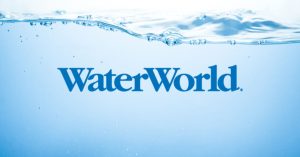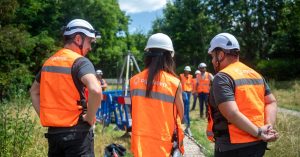- A game-changing EU roadmap to restore the water cycle, reduce leakages, and build a smart and resilient water economy
Last week, the European Commission officially unveiled the European Water Resilience Strategy, a comprehensive roadmap aimed at restoring and protecting the water cycle, securing clean and affordable water for all, and building a smart, sustainable, resilient and competitive water economy across the continent. In a time of growing climate pressure, with more intense droughts, catastrophic floods, and widespread water scarcity, this initiative marks a pivotal shift in how Europe approaches water security.
The strategy addresses a stark reality: Europe is the fastest-warming continent, and water can no longer be taken for granted. Climate-related water risks are already affecting citizens, farmers, ecosystems, and businesses, causing supply disruptions, health impacts, and rising economic losses. Notably, five of the top ten global risks for businesses today are water-related.
To respond, the strategy sets a shared European vision around three core objectives: (1) restoring and protecting the water cycle from source to sea, (2) developing a water-smart economy, and (3) ensuring access to clean and affordable water and sanitation for all. It outlines over 30 concrete actions and leverages existing EU legislation such as the Water Framework Directive and the Drinking Water Directive. A strong emphasis is placed on both water quantity and quality, pollution control (including PFAS), and improving water retention on land.
The strategy also recognizes that water resilience is a driver of innovation and competitiveness. The EU accounts for 40% of global water technology patents, and water-related R&D is seen as a growth engine. Accordingly, the Commission announced initiatives such as the Water Resilience R&I Strategy, a European Water Academy, and an EU-wide action plan for digitalisation and AI in the water sector. Funding support is being reinforced with €15 billion in planned EIB financing, a nature credits roadmap, and enhanced cohesion policy resources.
Water leakages at the heart of the strategy
One of the clearest signals in the new strategy is the focus on water leakages. Current national leakage levels range from 8% to as high as 57%, representing a major inefficiency in water supply networks. To address this, the EU will set a continent-wide leakage threshold by 2028. Member States exceeding that benchmark must submit national action plans to reduce leakage by 2030. Modernisation of water infrastructure, adoption of digital tools, and smart metering are all encouraged as part of this objective.
This strategic vision is strongly supported by existing European legislation. Under Directive (EU) 2020/2184 on drinking water and Directive 2000/60/EC (Water Framework Directive), municipalities are required to assess structural water losses at the DMA (District Metered Area) level using internationally recognised indicators such as the Infrastructure Leakage Index (ILI), expressed in cubic metres per year and per kilometre of pipe. All Member States must submit a national leakage assessment by 12 January 2026. From 12 January 2028, the European Commission will set a maximum acceptable leakage threshold for each municipality. Member States exceeding this threshold must implement a dedicated Action Plan to meet water efficiency targets.
At Aganova, we strongly support this direction. Undetected leaks waste not only water, but also energy, economic resources, and public confidence. Our Nautilus system offers a non-invasive, high-precision technology for inspecting large-diameter pipelines without service interruptions, while our Nemo platform delivers detailed analytics for data-driven decision-making.
Leading companies in integrated water cycle management must step up their efforts to enhance the efficiency of their transmission networks by systematically inspecting, diagnosing, and repairing sections with structural losses. Recent success stories underscore the importance of data-driven decision-making tools. In Ireland, Aganova is working with Uisce Éireann, the national water utility, to reduce water losses to below 20%. In Spain, a similar initiative with the Mancomunidad de Aguas del Sorbe has helped maintain transport losses below 5%. Both projects are the result of a public-private partnership with Microsoft, which has pledged to reduce its water footprint and return more water to the environment than it consumes by 2030. We are also beginning to see the launch of long-term tenders aimed at assessing the condition of major pipelines, such as the one recently awarded to Aganova in Paris by SEDIF, where the company achieved the highest technical and financial score.
The European Water Resilience Strategy is more than a policy document, it is a call to action for all levels of society. With a clear structure, strong investment backing, and a bold technological vision, the EU is positioning water at the heart of its climate, economic and innovation agendas. For companies like Aganova, this is an opportunity to scale impact and collaborate across borders. We are proud to contribute to a smarter, leak-free and more resilient European water future, starting now.
About Aganova
Aganova is a pioneering technology company specializing in large-diameter pipeline assessment through leak detection technology. Our smart devices and AI-driven analytics accurately identify leaks and anomalies, providing real-time data to prevent water losses. We empower Non-Revenue Water (NRW) managers and distribution network operators with precise asset information, enabling cost-effective and low-impact interventions. Since 2016, millions of cubic meters of water have been saved worldwide. Join Aganova in transforming pipeline management! For more information, visit aganova.com.







